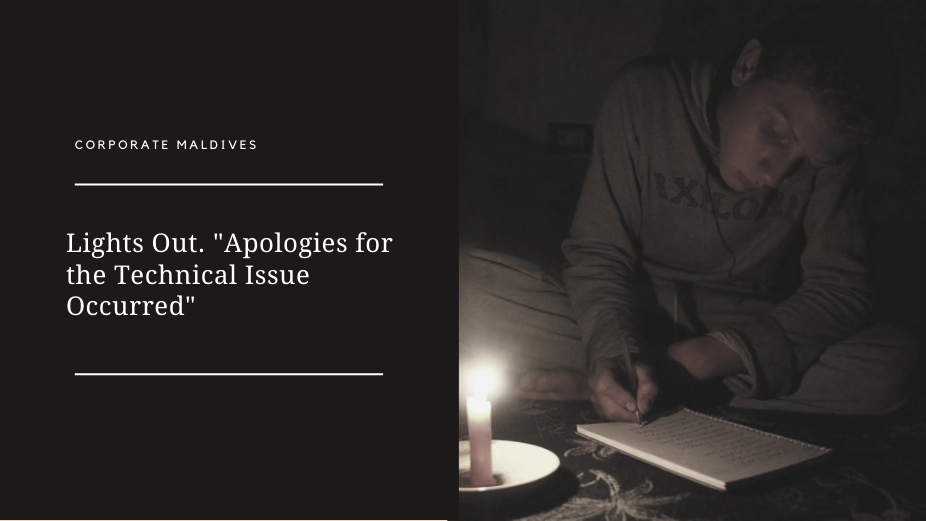
Last Friday, the whole Capital City faced a power outage that took place early morning and lasted for hours. It caused several disruptions, especially in the homes as chores are often busy during Fridays.
STELCO, the main electricity supplier in the country, announced that the power cut occurred due to a technical issue. “After the technical issue was solved and 80% homes in Male were provided electricity, we faced a distribution network issue which caused the power outage again. Within an hour, it is estimated to be solved. We apologize for the inconvenience.”
” Reversing dependence on imported fuel, investing in renewable energy, safe water & sanitation, providing young people with skills & support to contribute to econ. growth, & improving governance mechanisms are all key priorities in improving our energy security,” read a statement by Embassy of the Maldives to the United States in 2019, a year full of problems associated with power cuts.
The Maldives has a population of 557،426 and two electricity providers, STELCO and Fenaka. Fenaka is a state-owned utility company providing electricity, water, and sewerage to the island communities of the Maldives.
Technology failures are one of the main reasons why power outages occur. Although the equipment is rigorously maintained, problems with cables, connectors, transformers, switches, and many other types of equipment can fail, accidentally triggering an outage. In a report discussing solutions to blackouts in US, it was stated that generating electricity in relatively small plants located close to consumers, rather than in large central generation plants, will reduce blackouts. It also stated that a long-range plan should take into account engineering improvements.
In a report by ADBI in 2019, it was revealed that fuels such as diesel, petrol, aviation gas, and kerosene are the major types of petroleum products that the Maldives imports. Among these, diesel is the major import and accounts for 72% of the total fuel imports. Electricity generation consumes the largest proportion of imported fuel, and the outer islands, excluding the capital, account for 39% of the total electricity generated.
In 2015, Abu Dhabi Fund for Development (ADFD) signed a loan agreement with the government of the Republic of Maldives, by which ADFD will finance AED22 million a project that will generate energy from waste. The project will support the energy sector in the city of Addu, the second-largest city after the capital Male.
It is important to find a solution to the increase in power cuts in the country as it causes several disruptions in businesses, government activities and homes as well.













